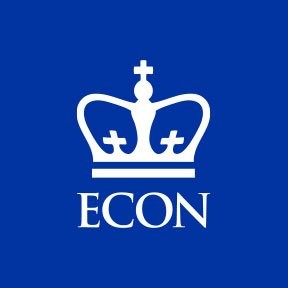Edmund Phelps's Remarks on Retiring from Teaching

Upon becoming Professor Emeritus in December 2021, Edmund Phelps has continued full time as Director of the Center. He gave these remarks at an April 25 luncheon held by the Economics department to mark his retirement from teaching.
Remarks at the Retirement Lunch, Columbia Faculty House, 25 April 2023
It’s very nice of the Economics Department to hold this Lunch marking my retirement from teaching in the Economics Department – but not from work.
I joined Columbia in September 1971 and remained a Columbia professor until the end of December 2021. To quote (loosely) from my memoirs, “On my usual train from Philadelphia back to Manhattan…I found myself sitting across from Kelvin Lancaster, the chair of the Economics Department… Columbia needed new senior members …and I needed to be fully in New York.”
There was a lot of building to do. We – mainly Ronald Findlay and I – started with hiring Guillermo Calvo, who had been in a class of mine at Yale, and John Taylor, whom I had met at a party in Stanford (in 1970). Then Ron recruited Carlos Rodriquez. I felt we were then in a position to go after Bob Mundell, whom I had come to know a few years earlier. We got him in 1974.
This was impressive. As I wrote in my memoirs, “the well-known macro-economist Stanley Fischer commented to me that the Columbia department had the best macroeconomics team in the country.” (My Journeys, p. 85)
Columbia is, for me, also a romantic place. It was here – in 1972 – that I met Viviana Montdor, who had been working in central offices at Low Library – and was transferred to the Economics Department. We got married in October 1974. We enjoyed the considerable social life with my colleagues.
Working at Columbia proved to be stimulating. There were stimulations from many directions. There was Jim Heckman, Stanley Wellisz, Peter Passell, Lowell Harris, the wonderful philosopher Sidney Morgenbesser, the splendid sociologists Robert Merton and Harriet Zuckerman, and others at Columbia. Arnold Collery, a teacher of mine at Amherst, became Dean at Columbia.
In the environment at Columbia and elsewhere – New York City, Paris, Amsterdam, Rome, Rio, Buenos Aires and Mannheim – I developed and branched out in the ‘70s to work on economic justice as conceived by John Rawls and on altruism, encouraged by Tom Nagel. In the ‘80s I wrote my textbook Political Economy, then I discussed the transmission abroad of fiscal stimulus at home. In the ‘90s I wrote Structural Slumps with my research team – a sort of Keynes vs. Hayek – and then Rewarding Work – a sign of the future.
The Festschrift for me in 2001 brought a hundred mostly-macro economists from around the world to Columbia to make presentations in my honor. The organizers were Roman Frydman at NYU and Philippe Aghion at Harvard along with Joe Stiglitz and Michael Woodford, both at Columbia. It was a stupendous event for me and Columbia too. So was my Nobel in 2006.
What came next was Mass Flourishing in 2013 with its theory of indigenous innovation (in contrast to the exogenous innovation of Schumpeter and Solow) and the sequel Dynamism with its battery of statistical tests – all devised and executed by Columbia PhD’s in economics – Raicho Bojilov, Hian Teck Hoon and Gylfi Zoega. (Columbia won, the German Historical School lost!)
Back in 2000 Roman Frydman and I envisioned the Center on Capitalism and Society, which – with help from Andrzej Rapacynski, Glenn Hubbard and others – opened in 2001 and is now recognized around the world. We had a conference with Common Good last week and are having on September 18 our 20th annual conference. It is bringing stars from around the world!
I was very happy when in December 2021 the Trustees agreed the Center may continue in its present space in 2022-2023 with the possibility of an extension to 2024. I am fortunate that I am able to go on doing the work I love.
I can’t express adequately my gratitude for all Columbia has done for me.